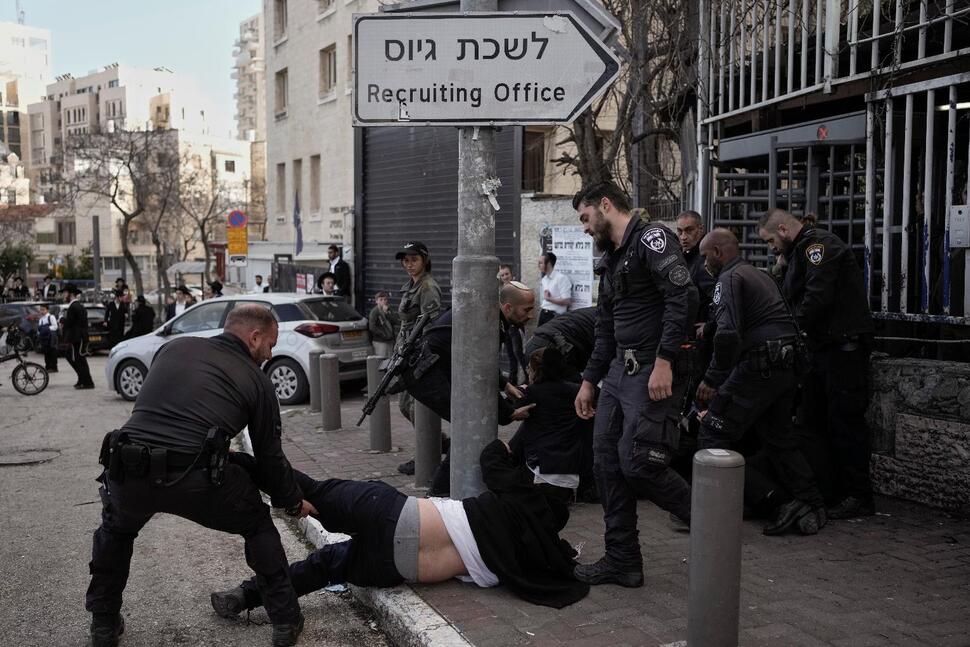JERUSALEM (AP) — Israel's Supreme Court ruling cutting subsidies for ultra-Orthodox men has rattled Prime Minister Benjamin Netanyahu's ruling coalition and threatened its viability as the country presses forward with its war in Gaza. gave rise to questions about.
Prime Minister Netanyahu has until Monday to submit to the court a plan to dismantle what the judge called a system that privileges the ultra-Orthodox at the expense of the secular Jewish masses.
If the plan alienates ultra-Orthodox lawmakers who rely on his support, the coalition could collapse and the country be forced to hold new elections.
Here's a breakdown of this decision and how it could affect the future of Israeli politics.
What does this decision indicate?
Photos to see

But the politically powerful ultra-Orthodox, who make up about 13% of Israeli society, have traditionally been exempt while studying full-time in religious seminaries (yeshivas).
This long-standing system has caused widespread resentment among a broad swath of the population, a sentiment that deepened during the nearly six months of war. More than 500 soldiers died in the fighting, and tens of thousands of Israelis had their careers, studies, and family lives interrupted to serve in the reserves.
The Supreme Court ruled that the current system is discriminatory and ordered the government to present a new plan by Monday and pass a new plan by June 30. Prime Minister Benjamin Netanyahu on Thursday asked the court for a 30-day extension to find a compromise.
The court did not immediately respond to his request. However, the government issued an interim order prohibiting the government from funding monthly stipends to military-age religious students who have not received deferment from the military. These funds will be frozen starting Monday.
While the loss of state aid is certainly a blow, it appears that yeshivas can continue to function. Israel's Channel 12 reported on Friday that the state provides only 7.5% of the total funding to institutions. Prime Minister Benjamin Netanyahu's coalition government may also seek discretionary funding to make up for the shortfall.
How is the decision being received?
Many Israelis believe the court's ruling will end a system that takes military service and economic contributions for granted, giving preferential treatment to the ultra-Orthodox, or “Haredim'' in Israel. celebrating.
Religious exemptions date back to the founding of Israel. It was a compromise struck by the country's first prime minister, David Ben-Gurion, with ultra-Orthodox leaders to allow the approximately 400 Yeshiva students to devote themselves fully to Torah study. However, this exemption has become a major divisive issue for Israeli society, as the once-remote Haredi population is rapidly increasing.
Many ultra-Orthodox continue to receive government scholarships into adulthood, avoiding paid employment and instead pursuing religious studies full-time. Economists have long warned that this system is unsustainable.
“The next government will have to have a long-awaited dialogue about the future of Haredi-state relations,” commentator Anshel Pfeffer wrote in Israel's left-wing daily Haaretz.
“Now, Haredim have no choice but to participate in it. It will not only be about youth national service, but it will also have to address fundamental issues about education and employment,” he said.
Ultra-Orthodox leaders are outraged.
Aryeh Deri, leader of the ultra-Orthodox Shas party, called the court's decision “unprecedented bullying of Torah students in the Jewish state.”
The ultra-Orthodox argue that integration into the military threatens their generations-old way of life, and that their pious lifestyle and dedication to upholding Jewish commandments make them the same as the powerful military. He claims to protect Israel. Although a few people chose to serve in the military, many vowed to fight any attempts to force Haredim to serve in the military.
Yitzchak Goldknopf, leader of the ultra-Orthodox party United Torah Judaism, said: “Without the Torah, we have no right to exist. We will fight in our own way and not compromise.” about that. ”
Why threaten Netanyahu?
Netanyahu, Israel's longest-serving prime minister, is known as a master politician. But his room for maneuver is limited.
If Prime Minister Benjamin Netanyahu, who has vowed to press ahead with a war that has damaged Israel's economy and strained many of its soldiers and reservists, seeks to maintain immunity for the ultra-Orthodox, the centrist wing of the fragile National Unity Government will may lose support. .
The two centrists in the fragile wartime cabinet, both former generals, have insisted that all sectors of Israeli society contribute equally. One of them, Benny Gantz, has threatened to resign, an act that destabilizes a key decision-making body during a sensitive period of war.
But a powerful bloc of ultra-Orthodox parties, Netanyahu's longtime partners, wants conscription exemptions to continue.
The ultra-Orthodox parties have not said what they will do if they lose their preferred status. But if they decide to leave the government, the coalition will almost certainly collapse, leaving Prime Minister Benjamin Netanyahu far behind in opinion polls amid a civil war and potentially forcing new elections.
Copyright 2024 Associated Press. All rights reserved. This material may not be published, broadcast, rewritten, or redistributed.


